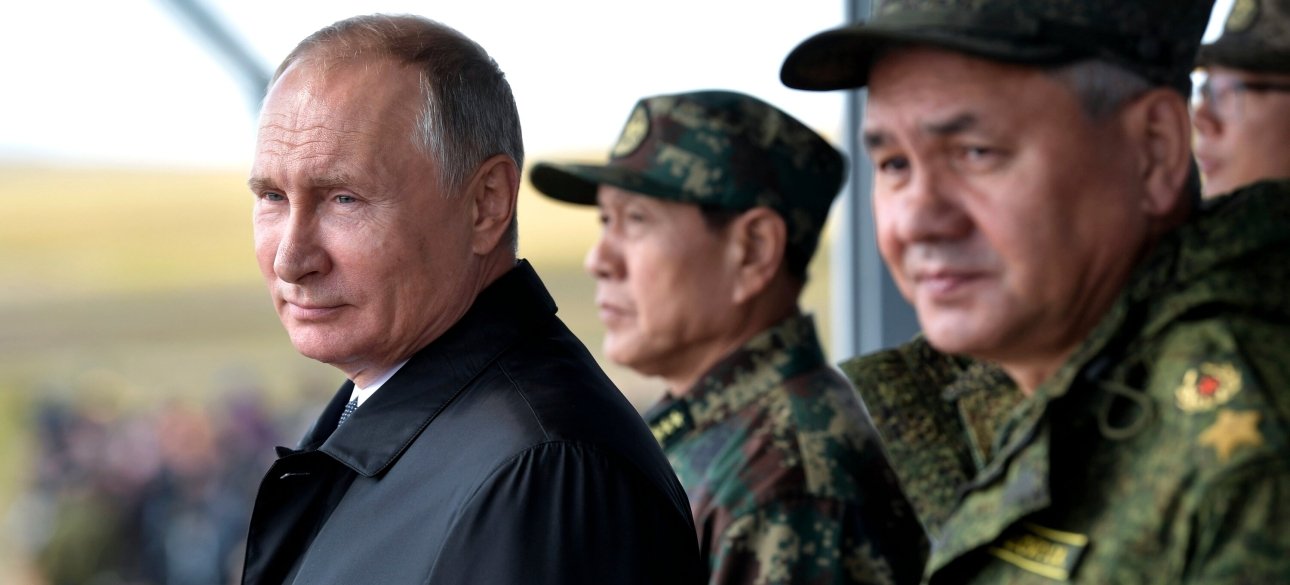
 By Natali Moss
By Natali Moss
2022. Well, or, for Ukraine, it will win somehow, but without changing the regime in the Russian Federation - so that Putler is weakened, but it remains in power. But it is all the utopia that comes from a misunderstanding of the essence of the Putler regime. 1. Putler will not finish the war without victory. At the same time, many in the West say - "A, with his propaganda, he will be able to sell his population for winning anything.
" First, not anything: the loss of Crimea, for example, will not sell. And Ukraine's accession to NATO too. But, the main thing is that the opinion of the population is interested in it in the thirtieth line: the main thing is to remain "invincible" in the eyes of elites. And they are smarter, and they remember more, and see further. Therefore, it should either humiliate the West, destroy Ukraine, or fight as much as it will be needed. That is, there will be no peace for Ukraine and the West.
These are incompatible things. 2. Time is not on our side. Voters in the Anti -Putler Coalition are tired of war, and maintaining is reduced. The forces of Ukraine are depleted. Stocks of weapons, too - and production of the new does not have time. Seriously and for a long time to disperse the military industry of the event - an expensive activity, and then, if it all end well, these capacities will be superfluous. And the voter is not delighted with unnecessary military expenses.
At the same time, the enemy is much easier - Russia has historically been a mobilization economy. The population was accustomed, especially violent, others are ready to endure the wanderings in the name of grandeur. If so, the Russian Federation will become the second Iran, a faithful ally of China. If something goes wrong, the next, the more frightening the explosion, the deeper decay, and more risks. 3.
The event is time to realize that The Shit has has was has, and the stuffing back into the meat grinder does not turn. There is simply no good and risk -free scenario in front, from the word "in general", and you should not please yourself with illusions - it is Wishful Thinking (it seems to me that Western people should perceive similar arguments, they have a cult of "adulthood" and sobriety).
There are really three scenarios: a) to surrender to the mercy of the winner: to betray Ukraine, to allow Putler to "keep his face" (he will not accept no compromise, it is not in his interests. A compromise for Russian culture is a sign of weakness). Price: purely economical - +4% of GDP for military expenditures, at least -3% of GDP from the collapse of world trade into two blocks (IMF valuation does not take into account the slowdown in growth).
The price is political - the loss of the leading role of the event, the collapse of the world order based on the rules, numerous local wars, including the capture of Taiwan. And no chance to make Putler by an ally against China (another mistake). b) keep the status quo as it turns out. This is the 1st World War (Defense Technologies are stronger than the offensive, as then). The one who has less stable political system loses.
In the 1st world won, in the end, democracy - and all the authoritarian empires lost, regardless of who they were side. But how did you lose? With Civic wars, the complete collapse of all and further establishment of hypeagressive totalitarian regimes. And it is natural. In addition, look at the processes that occur in the Russian Federation. The industry is militarized. The security forces are intensifying (it seems, nowhere else - and yet . . . The clan of the Chekists is especially intensified).
The remnants of freedoms are destroyed. The hedonistic elite is replaced by ideological. Rhetoric is becoming more and more fierce, with Hamas support, a rapprochement with Iran and the DPRK. That is, everything goes either to Iranization or to the "Big Bang" while trying to twist the nuts. Plus, in this case, the situation is characterized by the fact that in focus - Ukraine, which in the chain of democracies is a weak link, since democracy is a patronal, that is, unstable.
And the internal political situation is very difficult, only the Poroshenko sect is worth it . . . At the same time, democracy in the Union countries greatly undergone erosion from Libra and far-right. Postmodern did its black business. So the option (a) at the exit is absolutely not excluded, only after the huge cost of war. c) to break the negative trend: to strengthen Ukraine's maintenance and sanctions in order to create conditions for complete victory.
You can not call it a "change of regime" so as not to tease geese, but to say: "We create all the conditions for the Russian Federation to return to the legal field and be punished for violation of international order in the form of uncontrollable aggression. At the same time we do not interfere with internal affairs ".
This, approximately, as an intensification of budget restrictions by the Yushchenko government, as a result of the 1998 crisis, did not formally set out the task of disposing of "red directors" by a bad broom - it simply created conditions under which these parasites could no longer suck blood from the economy.
And since they, as a rule, could not change their Modus Operandi so much to become entrepreneurs or, at least, market managers, their places were either independent entrepreneurs or the managers appointed by the oligarchs. Actually, the system created in this way should push Russia to liberalize (John Herbst rightly noted that Russia usually received a liberalization period after the wasting wars).










All rights reserved IN-Ukraine.info - 2022